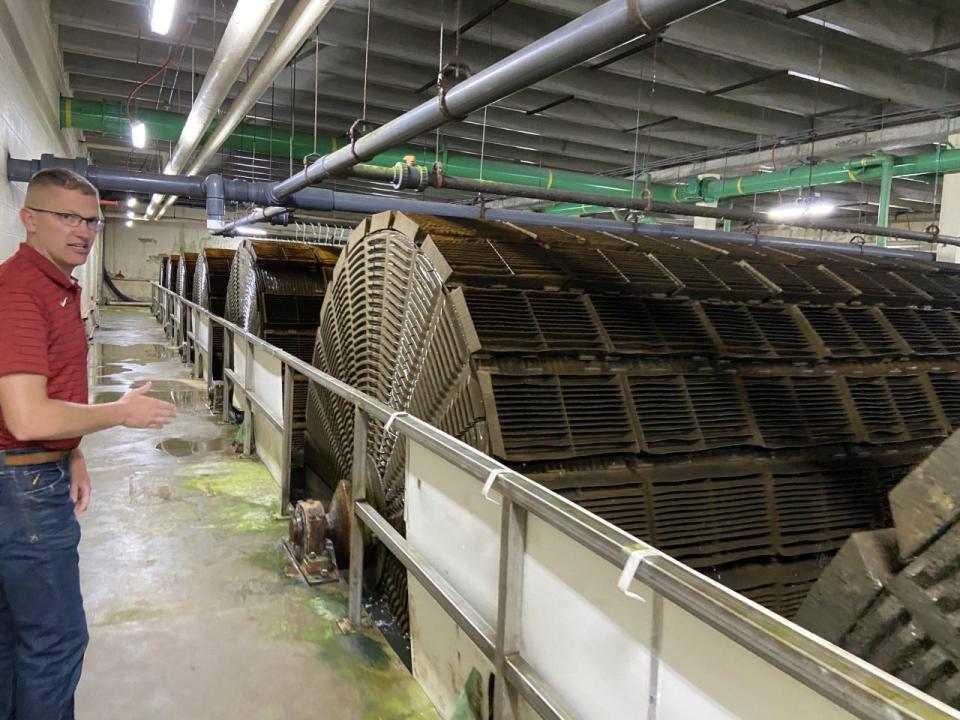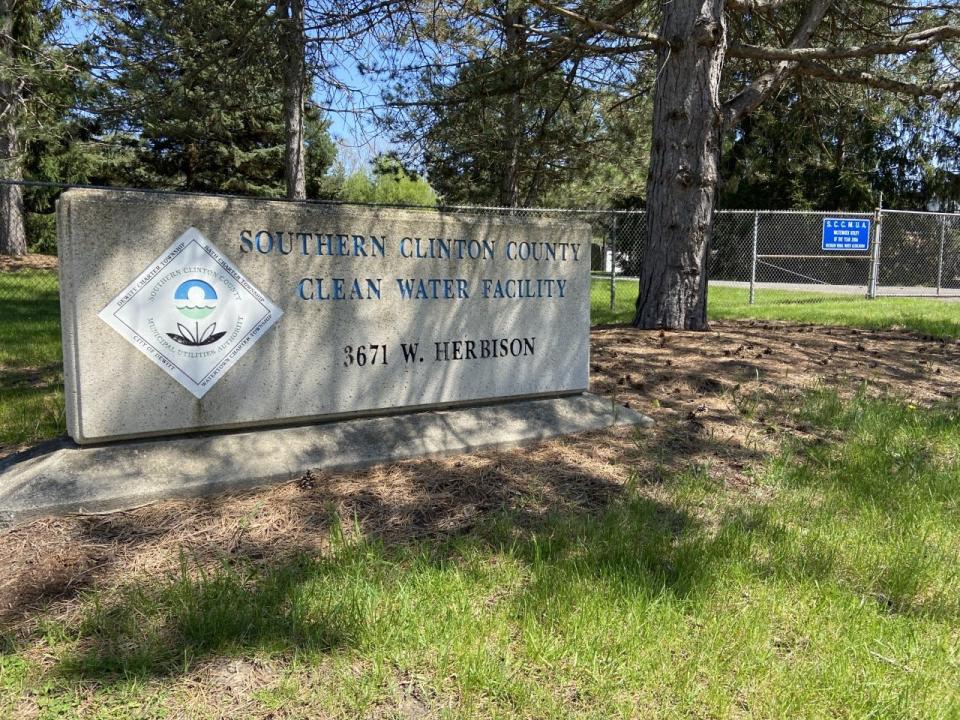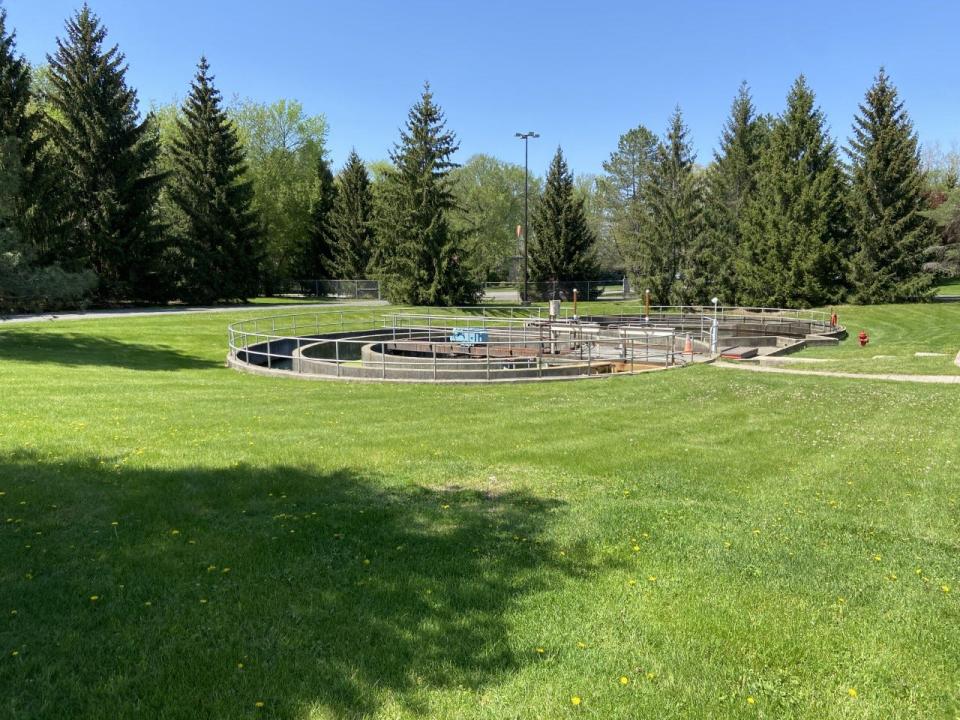Southern Clinton County's growth leads to $23 million sewer treatment plant upgrade
DEWITT — The housing and business growth in the last two decades in the southern part of Clinton County is starting to strain capacity of the region's wastewater system, leading to a $23 million plan to upgrade a wastewater treatment plant and potentially higher utility bills.
Some of the roughly 35,000 customers in southern Clinton County could see higher sewer bills starting in July because of the biggest upgrade since the plant, on Herbison Road near DeWitt High School, was built more than 40 years ago. How many will depend on how much of the costs their townships, or city, kicks in.
While growth poses challenges like getting better and more wastewater treatment, DeWitt Township Manager Andrew Dymczyk said it's better for the township to cope with growth-related challenges than to deal with losing people.

The Southern Clinton County Municipal Utilities Authority approved the project earlier this year. While construction timetables aren't finished yet, the work should start in 2024, said Brad Gurski, the utility's director of operations.
The utility covers about 35,000 customers in DeWitt and DeWitt, Bath and Watertown townships. Those are some of the fastest-growing municipalities in recent years in the Greater Lansing region.
The four municipalities' population grew at rates between 7% and 16% from 2010 to 2021, outpacing Clinton County's 5.5% growth and far outpacing Ingham and Eaton counties', which barely saw any growth in that time period, according to the U.S. Census Bureau.
Only the Okemos area and Delhi Township had similar growth, according to the Census Bureau.
Residents who see any increase will likely see quarterly increases of between $7 and $17, with bills now averaging between $60 and $118, Gurski said. Bond principal payments start being due in 2025 but interest payments will start in 2024, he said.
The increase in costs to residents and businesses will depend on how each municipality decides to pay for their share of the upgrades. Some could pass it along in quarterly bills or dip into municipal reserves or planned sewer reserves, Gurski said.
Watertown Charter Township has been saving for the project for years and plans to use its sewer reserve fund, said Township Manager Jennifer Tubbs.

Bills in the city of DeWitt will get higher starting in July. A 5% rate increase to the typical $72.54 quarterly bill is half in part to the new bonds and half because of routine cost increases, said Dan Coss, the city's administrator. He said the eventual increase would be around $25 to $30 a quarter but it would be phased in over several years and supplemented by sewer reserve funds to smooth out annual increases. The details will be hammered out by a consultant in coming months, he said.
DeWitt Charter Township's plans are to be determined but could involve a combination of increased fees and money from existing sewer reserve funds, Dymczyk said.
Bath Charter Township officials were not immediately available to talk about their plans.
The project still isn't the largest wastewater project developing in mid-Michigan. Delta Township is working on a $90 million rebuild of its plant.
Gurski said the SCCMUA upgrade is less of a full rebuild and more about replacing certain parts to keep it running.
The upgrades would include switching to a ultraviolet light disinfectant that would eliminate chlorine and another chemical currently used, which could save money, he said.

The capacity would increase from 2.9 million gallons a day in clean water discharged to the Looking Glass River to around 6 million gallons, with the expectation that 4 million gallons would be required in the near future. The other 2 million gallons would allow for future growth, he said.
The new capacity does not factor in the Eagle Township megasite, which state officials are marketing as a potential vehicle battery or computer chip manufacturing campus, Gurski said.
A major company locating in the area could change the construction plans going forward. For now, the utility is basing its capacity upgrades on the past 40 years of growth, he said.
Contact Mike Ellis at mellis@lsj.com or 517-267-0415
This article originally appeared on Lansing State Journal: How much will southern Clinton County's $23M sewer upgrade cost users?

